Scion’s FRS debuted in 2013 and is based on the ZN6 platform. It is powered by Subaru’s FA20 2.0L flat-four engine mated to a six-speed manual transmission (also available in automatic).
It’s well renowned in the tuner community for its impeccable handling and for how well it responds to modifications.
If you don’t already own an FRS, buying it second-hand is your only option because the Scion brand is officially defunct. Which raises the question of long-term reliability.
In this article, we’ll discuss some of the potential issues that you need to be cautious about before purchasing an FRS. We’ll also dive into some reliability-focused upgrades that you can install.
Reliability Review and Common Problems
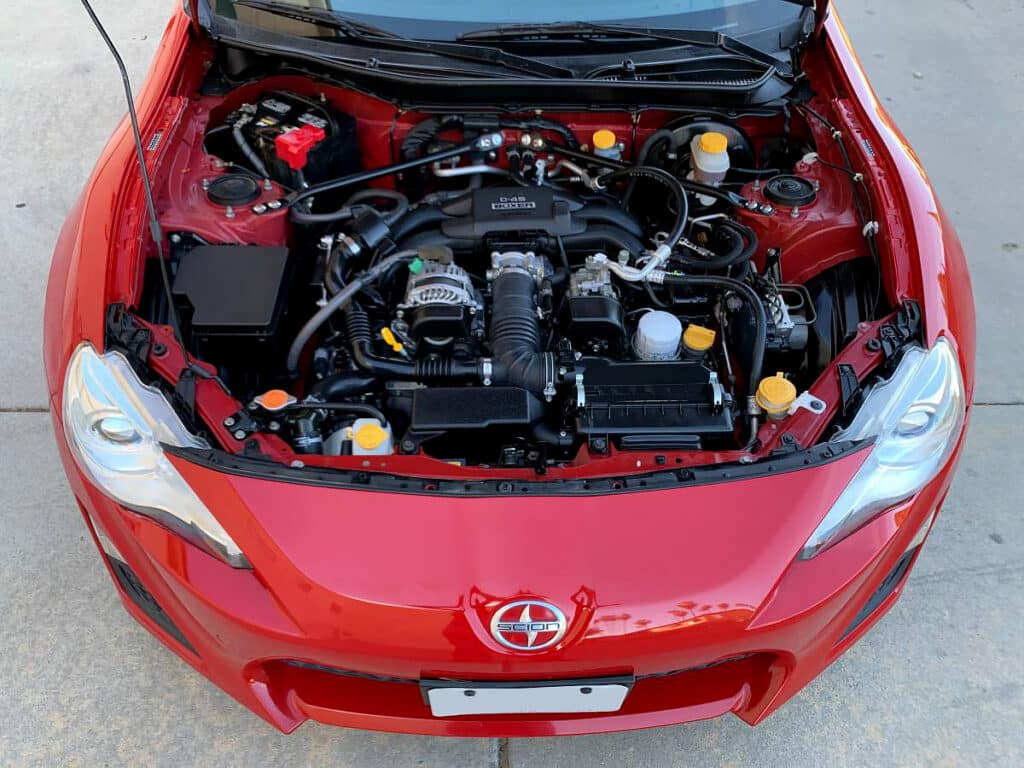
While the FRS is a solid and reliable car, it is not immune to imperfections. In fact, it has quite a few.
Below you’ll find a list of the most common problems prospective owners of the FRS can expect.
Disabled Ignition-Key Interlock System
While FRS cars are equipped with a standard interlock system, this issue came up during pre-delivery as the brand new cars were sent for sale with the interlock system disabled.
Disabling the ignition interlock system was a precautionary step that Scion took to avoid damaging the transmission during transportation.
Unfortunately, not all FRS cars had their ignition systems reconnected, which meant that owners could remove the ignition key without the car being in park, putting the vehicles out of compliance with federal laws.
This led to a recall in early 2016 to have the issue corrected in all affected cars for free. If you’re looking at a used FRS and want to know whether or not it was part of a recall, you can enter the VIN on Toyota’s official website to check the status.
Clutch Release Bearing Weakness and Failure
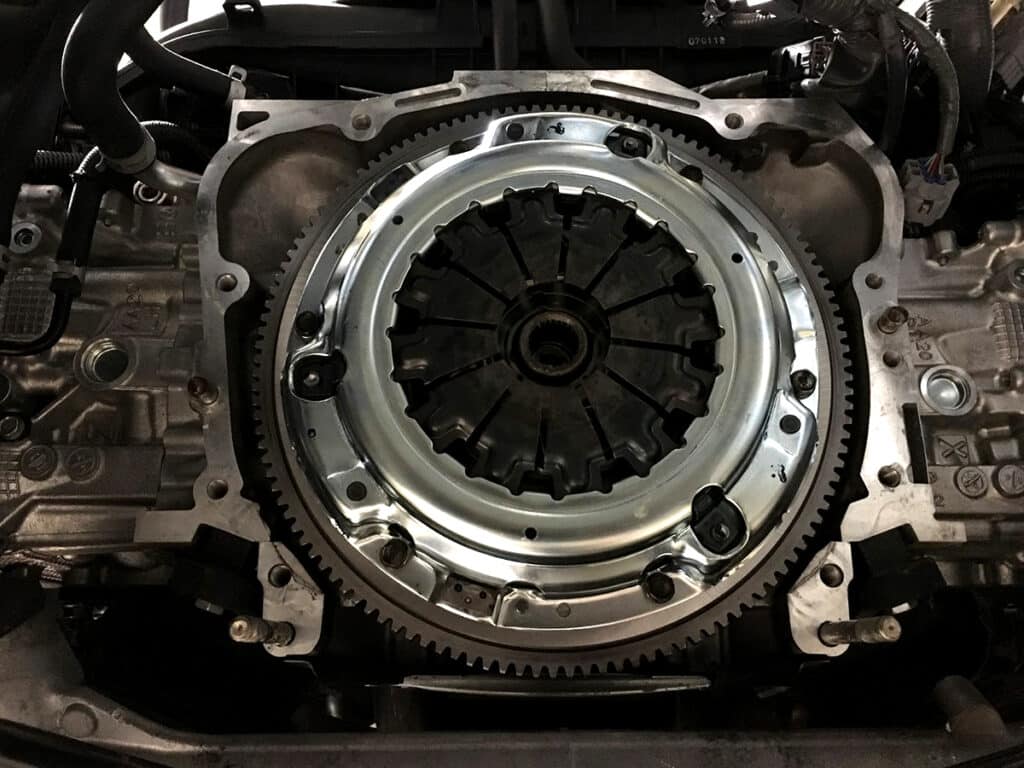
This is a common issue in the 2013 Scion FRS, but also prevalent in Subaru BRZ, and the Toyota GT86, as the standard factory clutch on all these cars is very light and doesn’t always offer adequate feedback and engagement.
It’s also fairly common for the clutch or throw-out bearing to fail prematurely, at times gradually accompanied by noise and juddering; other times it might catch you completely off-guard.
We recommend that you stop driving immediately and take the car for a clutch replacement if you notice any of the following symptoms:
- Grinding gears when using the clutch
- The clutch sitting higher than usual
- Difficulty shifting
Any delays in fixing this issue can deal further damage to the transmission housing, pressure plates, or the shaft.
Badly Programmed Engine Control Unit (ECU)
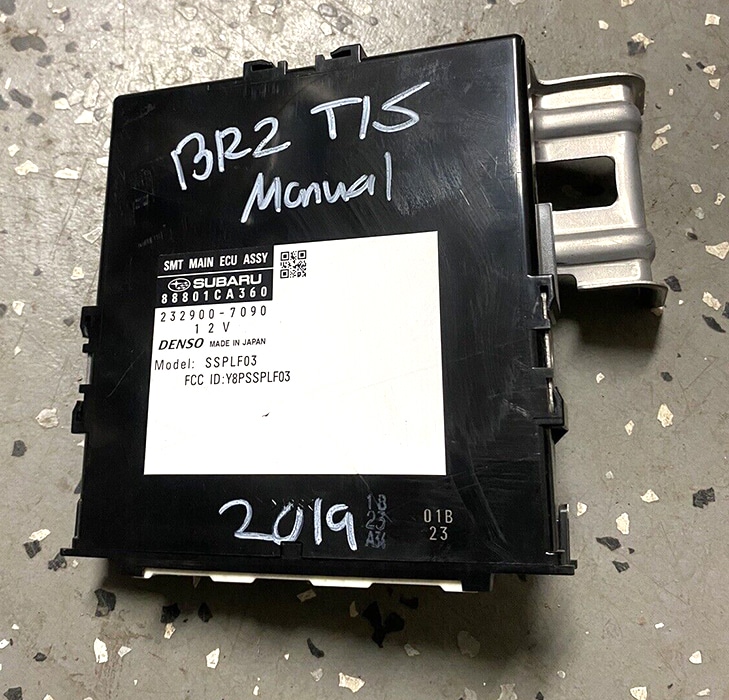
This issue is common to Toyota 86 cars, but many FRS and BRZ owners have reported similar difficulties with the ECU.
Simply put, an engine control unit (ECU) adapts to the driving of a new owner within the first 100 miles.
Yet in this case, once the ECU establishes some driving habits and parameters, pushing the car beyond them will lead to various problems.
Toyota 86 owners have specifically reported unstable engine revs when the car is in neutral.
While most second-hand cars have already faced and fixed this issue, should you confront it again, your car’s ECU will need to be reprogrammed.
Bad Fuel Pump
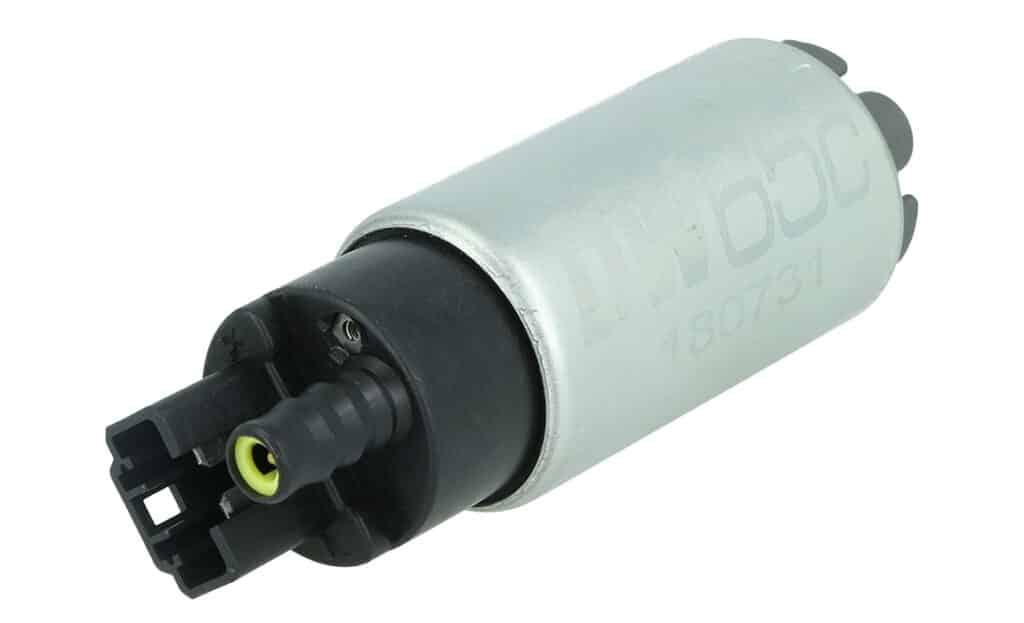
A bad fuel pump means your FRS engine is not getting enough fuel, resulting in it stalling, or worse, not starting at all.
Whining noise, sputtering acceleration, and difficulty in starting are all signs to look out for. Note that many of these symptoms are indicative of clogged fuel filters as well, which is not a common problem in the FRS.
Faulty Coil Pack
This is mainly an issue for speed lovers who love tracking and racing their car, and an inevitable one at that.
This includes numerous codes such as:
- P0351
- P0352
- P0353
- P0354
Each of these indicates the cylinder where the coil pack is not functioning.
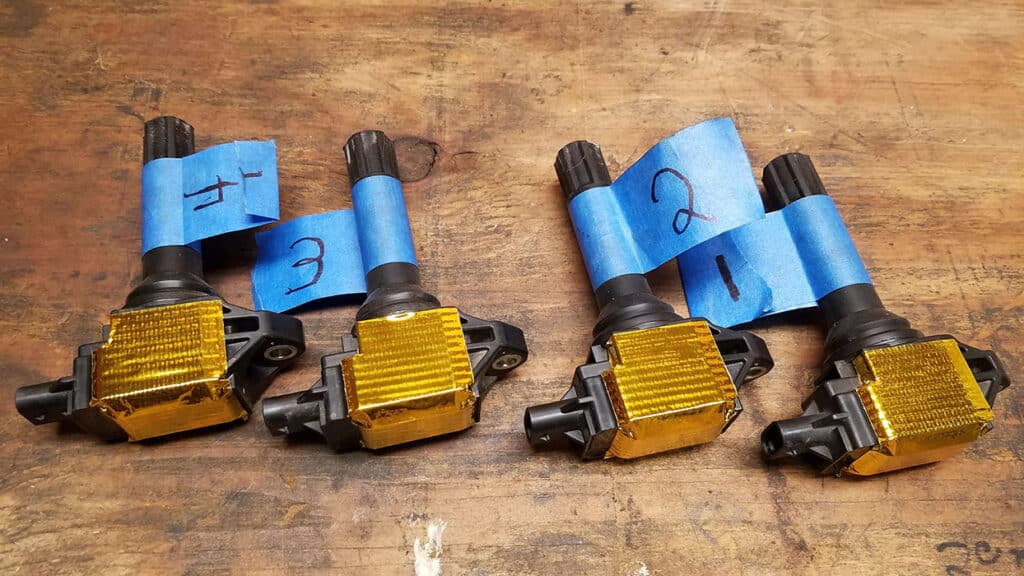
The reason is that the cylinders on the passenger side are close to the header, and their coil packs fail sooner than the rest due to the heat.
Solutions include various methods of heat insulation or adding hood vents (crudely put: drilling speed holes) into the hood of your car. These work as vents that help evacuate the heat.
High-Pressure Fuel Pump Chirp
No, your FRS doesn’t have crickets. Numerous owners have complained about a chirping noise heard from the fuel pumps, which at best indicates your fuel pumps will fail prematurely.
If you also hear a similar noise, the best solution is a complete replacement of fuel pumps before they die on you.
Poor Modifications
Scion FRS is renowned for being the ultimate modification platform, especially for power-related modifications.
That said, to keep the car healthy, mods have to be paired well, which requires a degree of experience that not everyone has.
When purchasing a used FRS, get a thorough list of all possible modifications used, and get a third opinion on their functionality as a whole, before finalizing a purchase.
Faulty Valve Springs
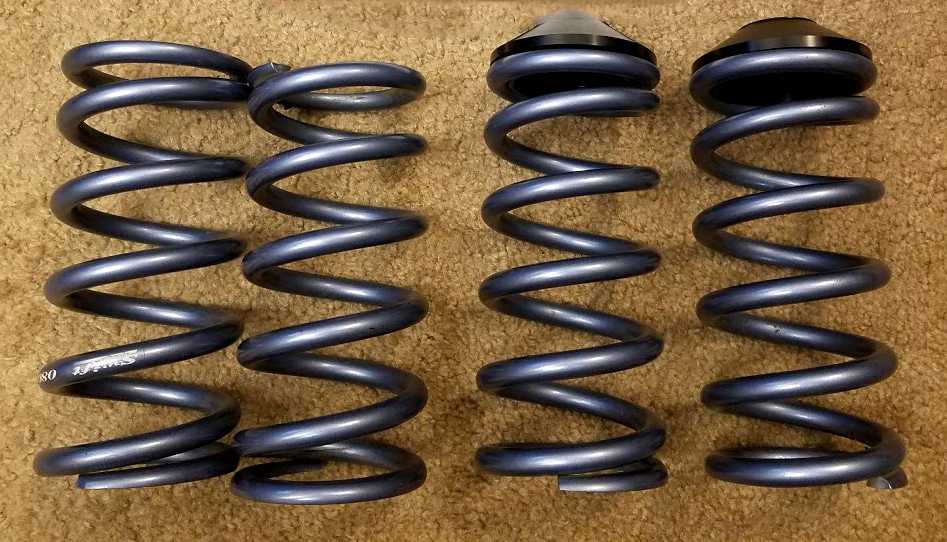
In late 2018, Toyota instituted a recall concerning defective valve springs that were susceptible to fractures and caused the engine to stall. The recall included both the 2013 BRZ and the Scion FRS.
In early 2019, around 75 owners reported previously fine engines dying post-recall repairs, which eventually led to a class-action lawsuit.
The lawsuit asserted that the necessary engine repairs after the recall had significant expenses for the Class Members, and they need to be reimbursed by Subaru and Toyota.
Subaru and Toyota then filed a motion to have the case dismissed (the result of which is still unannounced), all while encouraging FRS owners to bring their vehicles for the recall.
Depending on which side of this debate you side with, as a future owner of an FRS, you might want to discuss the recall history of any particular vehicle if you wish to purchase a used one.
Great Scion FRS Reliability Mods
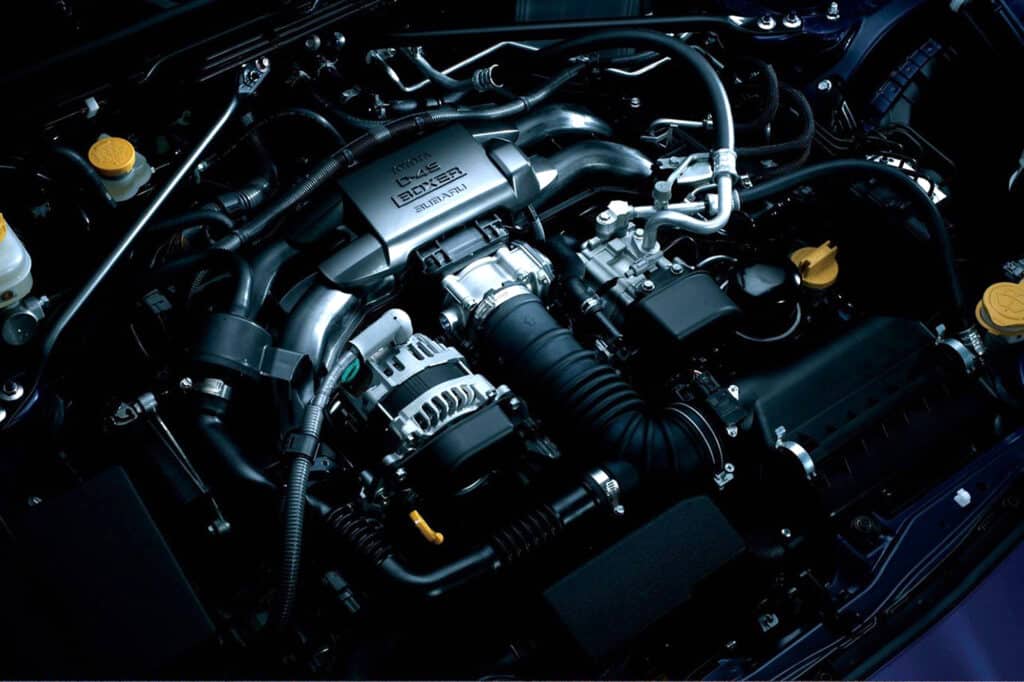
Modification and reliability don’t usually go hand in hand. As far as reliability is concerned, we recommend sticking to basic maintenance and common reliability mods.
That said, the Scion FRS offers a great platform for both minimal and major mods; some of which could even increase the reliability and longevity of your car, especially if you want to take it to the track.
Below is a list of some of the most common reliability modifications for Scion FRS, which you can pick and choose from according to your needs and driving conditions.
A Ceramic Tint
Window tinting is a basic but effective modification that protects both your car and your skin in the long run. The interior of the Scion FRS is relatively small, all black, and heats up fast under the sun.
If you want to keep your car cool, block glare from other drivers’ headlights, and benefit from added UV protection, we recommend you consider a high-quality ceramic tint.
It’s worth noting of course, that ceramic options aren’t able to be removed easily like typical window tint. For this reason, you’ll want to be sure that any ceramic coating satisfies your local tint laws.
Oil Cooler
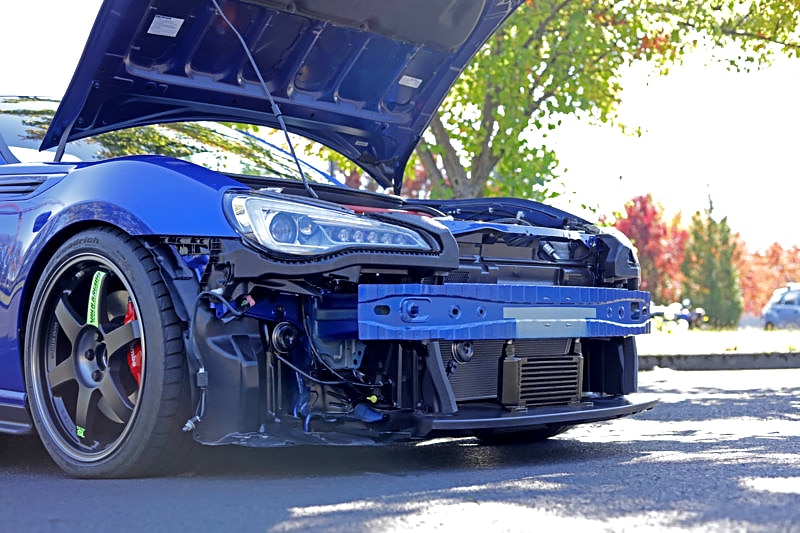
If you enjoy spirited driving under extreme conditions, it’s very important to control your engine’s temperature to increase its durability.
Unfortunately, while the FRS does a great job controlling the engine coolant’s temperature, there isn’t a dedicated oil cooling system built into it.
The only thing keeping your engine cool is the ambient airflow around it. This is why we recommend you look into internal oil coolers or external ones with a thermostat. For daily drivers, an external oil cooler with no thermostat doesn’t do much.
Brake Ducts

Brake ducts are a great reliability and longevity mod for Scion FRS. They pass cool air from the front surface of the car back to the hot brake rotors.
The continuous flow of this channeled cool air gives your brakes the chance to shed heat at a much faster rate.
Engine Management
Factory tunes are made with consideration for the warranty’s costs and risks, and are meant to work on thousands of engines.
This means that tuning any individual vehicle according to your driving habits and conditions is going to increase its longevity.
Most good tunes result in more power, less knock, and superior performance by remapping your ECU or adding certain additional parameters to your existing ones.
Note that a bad tune done with little experience will produce less power and cause more harm, so pick your tuner carefully.
Wheels
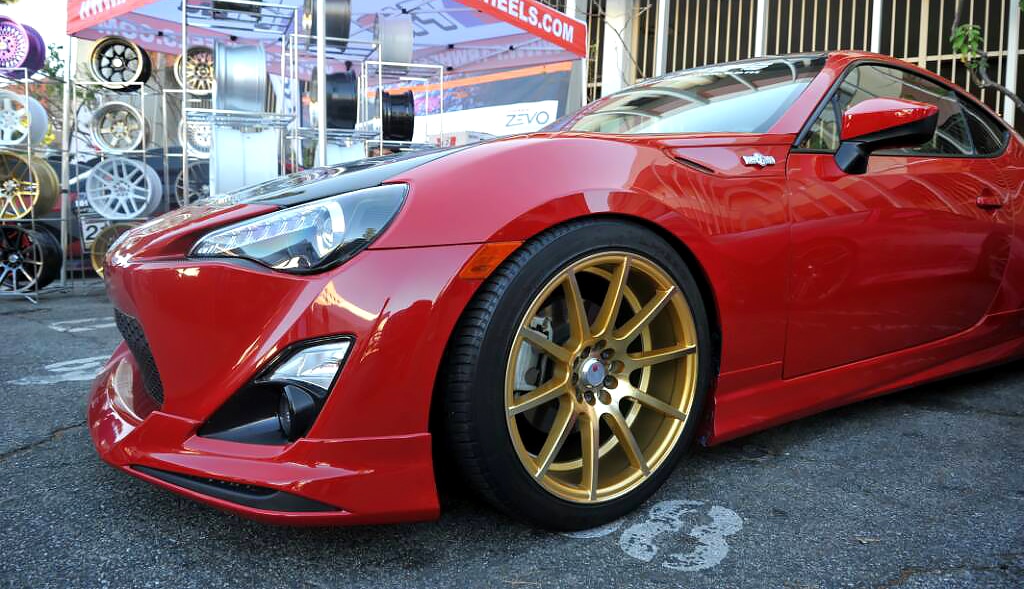
The stock 17×7 wheels on the FRS are frequently criticized for poor design, lack of width, and their low-grip hybrid tires.
Wheel mods are frequently recommended for reliability because any part that reduces rotational mass, such as wheels, will reduce the stress on your engine.
If you are looking to race your car, we recommend reading our guide to Scion FRS wheels and setting aside at least $2,500 for some lightweight wheels from credible brands like Volk Racing, Advan Racing, Work Wheels, WedsSport, SSR or Enkei.
Minor Suspension Mods
Although suspension mods are usually recommended as part of the racing modifications package, depending on your driving style they can significantly improve handling and longevity as a result.
Consider purchasing coilovers for your FRS, in addition to other mods like sway bars, a strut bar, and aftermarket control arms if you want to make changes to the suspension geometry.
Our Final Verdict
Overall, the Scion FRS is a generally reliable car that rarely goes for sale on the used market, as most owners invest in them as long-term daily drivers.
Apart from the valve spring recall situation, these cars are relatively drama-free and most of their common problems are on the cheaper end. Their engines easily make it past 300k miles with proper maintenance.
Steer clear of heavily modified examples unless you know the owner and trust the integrity of the overall build. But regardless, it’s best to discuss any previous modifications in detail when buying used.
Would you rather modify your FRS or keep it bone stock? Let us know by leaving a comment below.
If you enjoyed reading this post, please share it with your friends or post it on Reddit. We appreciate your support!


1 comment
I purchased my brand new in 2016. Today it just turned 94,000 miles. It’s bone stock. It’s gonna stay that way.
It gets the scheduled OEM recommended maintenance without fail. Solid as a rock. No issues.